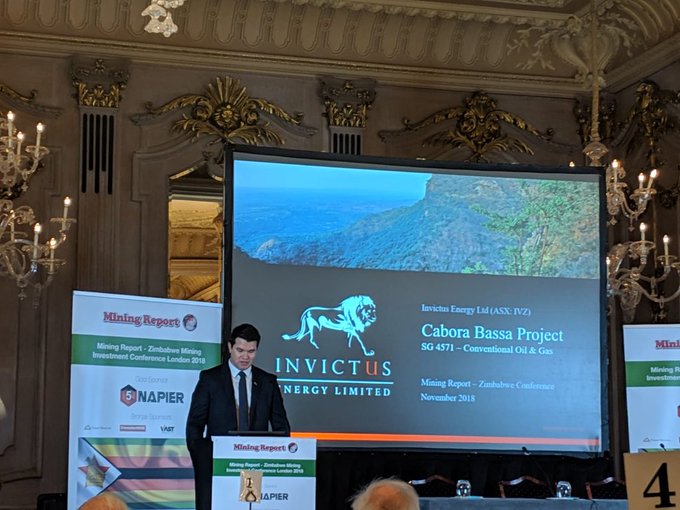No oil discovery as Invictus ceases operations on Mukuyu-1
INVICTUS Energy — the Australia-based resources outfit that is hoping to make Zimbabwe’s first oil find — has ceased operations on Mukuyu-1 and ST1 before making any oil discoveries, citing “unsuitable” and “not feasible” conditions.
Drilling challenges included the failure of a T-bar clamp while attempting to recover the wireline formation testing gear, which was subsequently damaged in the process.
Invictus claimed that further attempts to obtain a fluid sample were “not feasible”, and as a result, the business shut down activities on Mukuyu-1 and ST1 and demobilised the well-services equipment and staff.
It said the Exalo Rig 202 would be warm-stacked for maintenance and modifications before more drilling at Mukuyu-2 or Baobab-1 this year.
In order to continue drilling wells in Zimbabwe’s Cabora Bassa Basin, the business has renewed the rig’s contract for an additional year.
Invictus claims that despite the subsequent problems, the early Mukuyu-1 and side-track good performances gave them confidence.
The Mukuyu-1 and side-track wells, according to managing director Scott Macmillan, have several gas zones and perhaps liquid hydrocarbon-bearing periods that have been deduced from drilling and wireline logs.
“We have achieved a fantastic result from the Mukuyu-1 and side-track well which has multiple gas zones and potentially liquid hydrocarbon bearing intervals interpreted from wireline logs and drilling,” Macmillan said.
“We have a proven hydrocarbon system in the Cabora Bassa Basin as evidenced from significantly elevated gas shows and fluorescence during drilling and confirmed the presence of rich source rock, seal, reservoir, trap and timing.
“Whilst we are frustrated with the numerous operational challenges encountered and not being able to obtain a fluid sample which would have enabled the formal declaration of a discovery, we have still achieved a hugely significant result from the first well in the basin which has substantially de-risked our dominant acreage position and established a new petroleum province.”
A “high quality dataset” covering the Mukuyu-1 and side-track wells, according to the Invictus CEO, has been gathered.
This dataset will now be integrated with the available seismic data to calibrate and refine their interpretation and plan for the appraisal of Mukuyu as well as other prospects in the basin.
He claimed that the Upper Angwa Alteration Member Horizon, which demonstrated increased hydrocarbon potential over a 900-metre gross interval with enhanced gas displays and fluorescence, had continued to give them hope.
“The contract amendment executed with Exalo to keep Rig 202 for an additional 12 months underpins our confidence in the hydrocarbon prospectivity of the basin and will result in substantial time and cost savings to the company compared to demobilising and remobilising the rig to and from east Africa for future drilling,” he said.
The stacking of the rig at Mukuyu-1, according to Macmillan, would also enable Exalo to perform rig maintenance and upgrades before restarting drilling at Mukuyu-2 or Baobab-1 this year, while the company sources the necessary long leads, holds well service tenders, and incorporates the significant data gathered into the geological model to determine future drilling locations.
“We have gained a deeper understanding of the subsurface geology and valuable experience in drilling of the Cabora Bassa Basin which will allow us to optimise our plans, drilling fluids, equipment and services required for future campaigns,” he said.
Macmillan expressed gratitude to the company’s shareholders and backers for helping to finance the drilling campaign, the outcomes of which have placed “us in a strong future position given the petroleum potential of the basin has been proven”.
“We have an exciting portfolio of additional prospects and leads which has been substantially de-risked in addition to Mukuyu,” he said.-newsday










